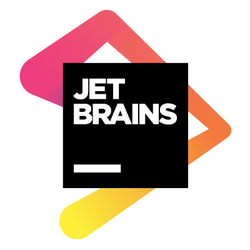Czwartek, 15.03.2018 18:30
Christopher Lozinski
ZODB: The graph database for Python Developers
The ZODB is a mature graph database written in Python and optimized in C. Just subclass off of class Persistent Object, and Persistent Container, and your objects, graphs and applications become persistent.
The market for Graph Databases has recently exploded, as evidenced by over $200Million invested in graph database companies. Most of the graph databases are written in Java.
If you are a Python developer, you will find much greater productivity using a graph database written in Python, than one written in statically bound Java. The major Java databases constrain you to one of several persistent data types. Persistent Python, supported by the ZODB allows you to make any Python Data Structure persistent.
The new ZODB Demo makes it very easy to start building your own applications on top of the ZODB. You can start by customizing the TreeLeaf, TreeBranch and TreeRoot classes and their templates. You get CRUD for free.
The demo includes traditional relational CRUD, Create, Read, Update, and Delete. But it also includes the extended graph CRUD. Rename a Leaf Or Branch. Cut and paste leaves or branches, copy and paste leaves or branches. The talk also demonstrates the soon-to-be released view historic versions and restore a previous version.
Wojciech Erbetowski
Dokumentacja w samodokumentującym się świecie
Większość zespołów, z którymi pracowałem kroczyła nigdy niekończącą się ścieżką w poszukiwaniu złotego środka w pisaniu dokumentacji. Miejscu, w którym czerpie się korzyści z posiadania pomocnej dokumentacji, jednak nie spędza się zbyt wiele czasu i energii na jej tworzeniu.
Dla niektórych punktem wyjściowym jest popularny błąd, w którym mówi się, że kodu nie należy dokumentować, gdyż kod powinien być sam w sobie wystarczająco czytelny. Inni z kolei tworzą bardzo dokładną dokumentację i szybko wpadają w pułapkę ogromnego kosztu jej utrzymywania.
Jest lepsza droga, aby inni programiści mieli dobre wrażenia. Podzielę się kilkoma sposobami, jak na przykład:
• Częściowo lub całkowicie wykonywalna dokumentacja
• Dokumentacja API zrozumiała dla maszyn i ludzi
• Testy automatyczne jako dokumentacja
Michał Wysokiński
AsyncIO or how Python developers made Python 4.0 without calling it so

While searching the Internet for yet another module that's AsyncIO compatible I've stumbled upon this github comment: "Ya, IMHO the whole async stuff is yet-another-rift that the upstream python developers caused (without even calling it python 4.0) and I'm not even sure how many people/developers see that yet. (...)" ...and I completely agree with it.
I've been running AsyncIO in production for over a year now and my initial enthusiasm has waned. Don't get me wrong, AsyncIO is great and I will continue using it. However, being at the technological edge comes with a price, which a lot of people is not aware of.
In this presentation I'm going to talk about what I wished I had known before adding AsyncIO to our stack and share my experience with running and maintaining AsyncIO applications at Akamai.

Prelegenci
Christopher Lozinski 
Christopher Lozinski is an MIT graduate, serial entrepreneur, dual US-EU citizen, and polyglot. Instead of seeking Venture Capital, he moved from Silicon Valley to Poland. He runs a catalogue of the Best Python Lightning Talks at PythonLinks.info, he released the Forest Chat Wiki at ForestWiki.com, and is about to release the Simple Scalable MQTT Topic Logger https://github.com/PythonLinks/Simple-Scalable-MQTT-Topic-Logg.
Wojciech Erbetowski 
I am a Software Engineer, mostly recognized for my numerous contributions to the tech community as an organizer, speaker and activist.
Currently I am coding at Codility and training developers with Bottega.
I had a lot of fun building communities like Warsaw Java User Group, Mobile Warsaw and organizing some great events (Mobile Central Europe, Warsjawa) and leading IT departaments in Polidea and Growbots.
I am also a mathematician, amateur runner, notorious speaker.
Michał Wysokiński
Michal Wysokinski is a software engineer at Frameworks and Tools team making sure that Akamai is using only best tools for the job. He’s most recent work involves developing a framework for monitoring and testing Akamai’s vast CDN network of nearly 240 000 servers and creating a tool for alerting and live analysis based on microservices logs produced by Akamai’s internal cloud platform.

Sponsorzy spotkania

🏢 DEPLOYED – Twój partner technologiczny w Krakowie!
Jesteśmy software housem z Krakowa, który od 2011 roku dostarcza dedykowane rozwiązania cyfrowe dla klientów z różnych branż.
Tworzymy systemy webowe, aplikacje mobilne, oprogramowanie IoT oraz platformy e-commerce.
💻 Nasze technologie:
✅ Backend: Python / Django
✅ Frontend: ReactJS / React Native, TypeScript
✅ AI & Big Data
✅ Cloud & DevOps: AWS, Docker, Ansible, RabbitMQ, Nginx, Redis
✅ Monitoring & Automatyzacja: Grafana, Prometheus, Celery
✅ Testowanie: Jest, Babel
✅ Zarządzanie stanem: Redux
🔧 Specjalizujemy się zarówno w tworzeniu nowych projektów od zera, jak i w pracy z istniejącymi, starszymi kodami.
Pomagamy modernizować przestarzałe technologie, aby Twoja firma była bezpieczna i zgodna z najnowszymi trendami rynkowymi.
📂 Sprawdź nasze realizacje: 🔗 Portfolio
👥 Chcesz dołączyć do naszego zespołu?
🎯 Ciągle się rozwijamy i rekrutujemy na różne stanowiska! Sprawdź aktualne oferty:
🚀 Postaw na innowację – współpracuj z nami!






